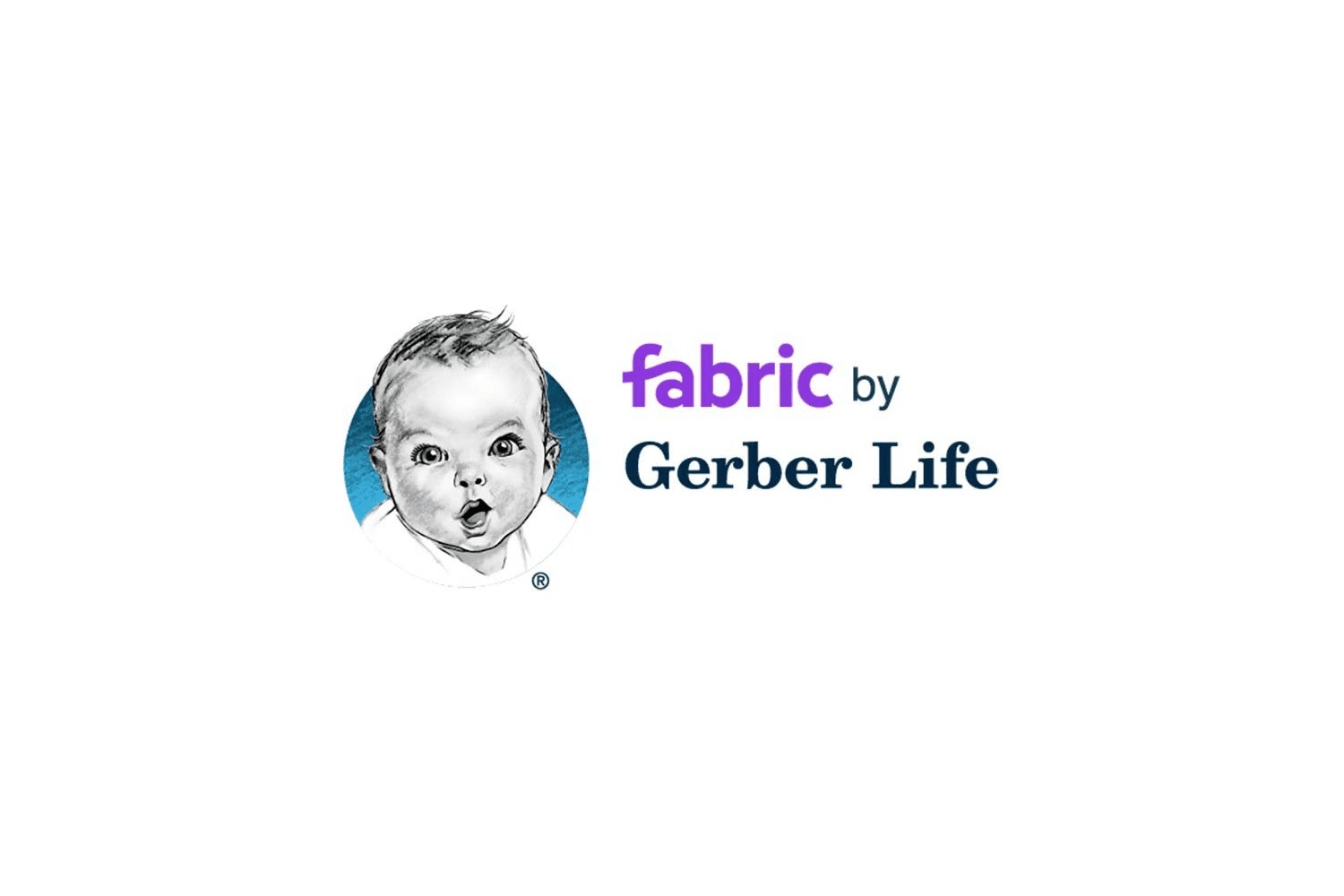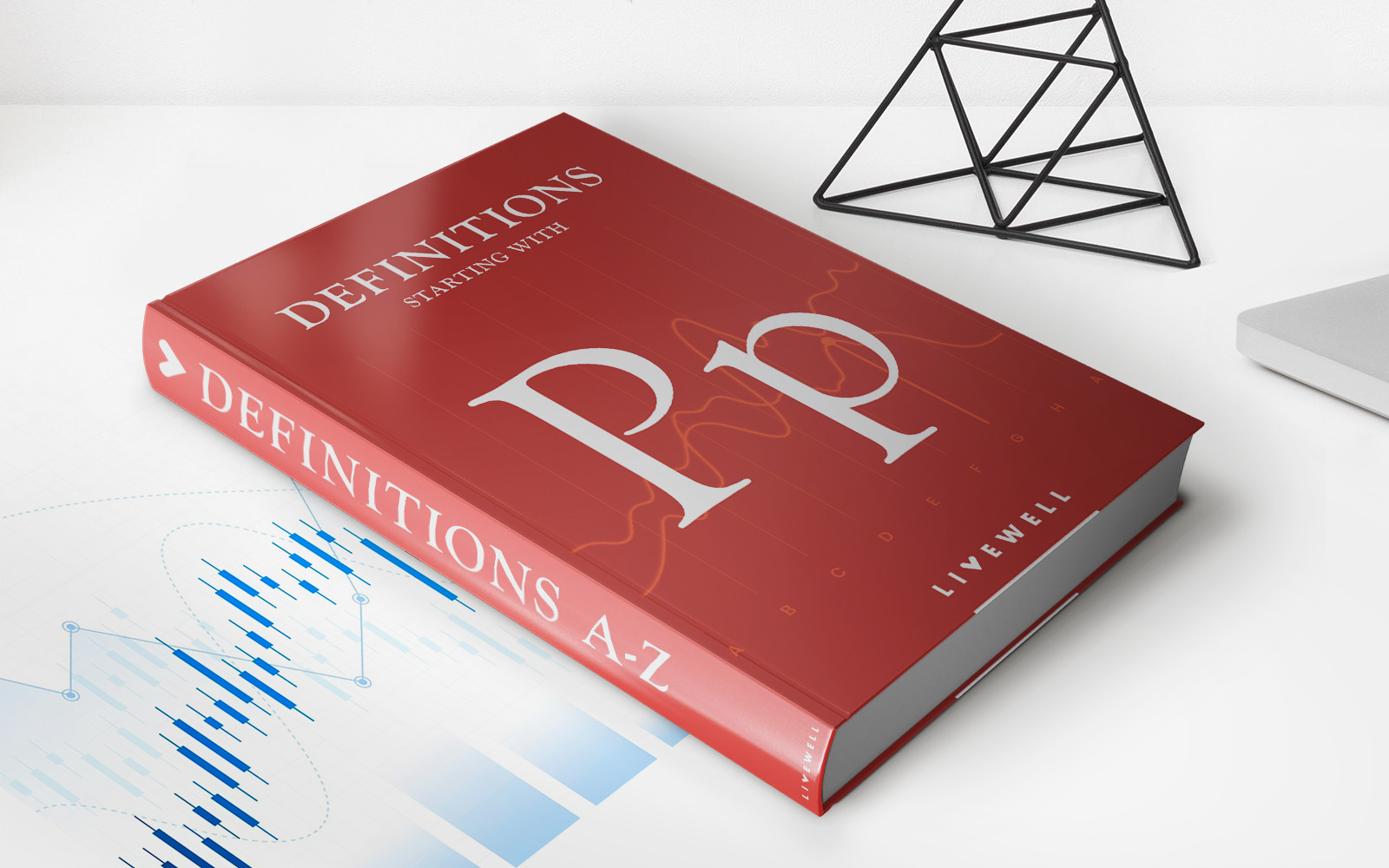Home>Finance>When Can You Cash In A Gerber Life Insurance Policy?


Finance
When Can You Cash In A Gerber Life Insurance Policy?
Published: November 15, 2023
Find out when you can cash in your Gerber Life Insurance policy and learn about the financial options available to you. Explore finance-related details now!
(Many of the links in this article redirect to a specific reviewed product. Your purchase of these products through affiliate links helps to generate commission for LiveWell, at no extra cost. Learn more)
Table of Contents
Introduction
Life insurance is an essential financial tool that provides protection and financial security to your loved ones in the event of your passing. It serves as a safety net, offering peace of mind by ensuring that your family’s financial needs are taken care of even after you’re gone.
One renowned insurance provider that has been serving families for decades is Gerber Life Insurance. With its trustworthy reputation and commitment to providing affordable coverage, Gerber Life Insurance policies are a popular choice for individuals and families seeking financial protection.
In this article, we will explore the various aspects of Gerber Life Insurance policies, with a particular focus on understanding when and how policyholders can cash in their policies. Whether you’re considering purchasing a Gerber Life Insurance policy or already have one and want to understand your options, we’ve got you covered.
Let’s dive into the details of Gerber Life Insurance policies and learn when you can cash in on the benefits.
Understanding Gerber Life Insurance Policies
Before we delve into the specifics of when you can cash in a Gerber Life Insurance policy, let’s first understand the basics of these policies. Gerber Life Insurance offers a range of coverage options, including term life insurance and whole life insurance.
Term life insurance provides coverage for a specified period, typically 10, 20, or 30 years. It offers a death benefit to your beneficiaries if you pass away during the term of the policy. On the other hand, whole life insurance provides coverage for your entire lifetime, and it also includes an accumulation of cash value over time.
Gerber Life Insurance policies are designed with affordable premiums and a simple application process, making it accessible to individuals and families with various budgetary considerations. The company emphasizes the importance of protecting families and ensuring their financial stability, making their policies widely appealing and reliable.
It is crucial to carefully assess your insurance needs and take into consideration factors such as your age, health condition, financial goals, and dependents before choosing a Gerber Life Insurance policy. Understanding the type of coverage you have and the terms and conditions of your policy will greatly help in making informed decisions.
Now that we have a basic understanding of Gerber Life Insurance policies, let’s move on to explore when and how you can cash in these policies.
Policy Maturity
One of the primary ways to cash in a Gerber Life Insurance policy is to wait for it to reach maturity. The maturity date is the predetermined point when the policy reaches its full term and becomes eligible for payout.
The specific maturity date can vary depending on the type of policy you have. For term life insurance policies, the maturity date is typically the end of the policy term, which can range from 10 to 30 years. On the other hand, whole life insurance policies usually have no specific maturity date as they provide coverage for your entire lifetime.
When your Gerber Life Insurance policy reaches maturity, you have the option to receive the payout in one lump sum or choose a structured settlement. A structured settlement allows you to receive the proceeds in regular installments over a specified period of time.
It’s essential to review your policy documents or contact Gerber Life Insurance’s customer service to determine the exact maturity date of your policy. Make sure to mark your calendar and plan accordingly to maximize the benefits when your policy reaches maturity.
Keep in mind that if you choose to cash in your policy at maturity, you will no longer have coverage. Therefore, it’s crucial to assess your insurance needs and consider alternative strategies for financial protection before making a decision.
Now that we have covered policy maturity, let’s explore another option for cashing in your Gerber Life Insurance policy: surrendering the policy.
Surrendering the Policy
If you find yourself in need of cash and no longer require the coverage provided by your Gerber Life Insurance policy, you have the option to surrender the policy. Surrendering a policy means terminating it before reaching maturity and receiving the surrender value, which is the amount of cash that Gerber Life Insurance will pay you in return.
It’s important to note that surrendering your policy before maturity may result in a lower payout compared to waiting for the policy to reach its full term. The surrender value takes into account factors such as the length of time the policy has been in force, premiums paid, and any outstanding loans or fees.
To surrender your Gerber Life Insurance policy, you will need to get in touch with their customer service or your insurance agent. They will guide you through the surrender process and provide you with the necessary forms and instructions. It’s essential to read and understand the terms and conditions of surrendering your policy, as there might be potential tax consequences or penalties.
Before deciding to surrender your policy, it’s advisable to explore other options for obtaining cash, such as taking a loan against the policy or exploring potential accelerated death benefit options. This way, you can weigh the pros and cons and make an informed decision that aligns with your financial goals.
Now that we’ve discussed surrendering the policy, let’s move on to another option for accessing funds: policy loan options.
Policy Loan Options
Instead of surrendering your Gerber Life Insurance policy and losing the coverage altogether, you may consider taking advantage of the policy’s loan options. Gerber Life Insurance policies, specifically whole life insurance policies, often offer the flexibility of taking out a loan against the accumulated cash value of the policy.
When you take a policy loan, you essentially borrow money from the insurance company using the cash value of your policy as collateral. The loan amount is typically a percentage of the cash value and accrues interest over time. These loans are usually low-interest or interest-free, making them an attractive option for accessing funds when needed.
Policy loans provide you with the necessary liquidity while keeping your policy in force. However, it’s important to remember that any outstanding loan balance, including accrued interest, will reduce the death benefit that your beneficiaries receive upon your passing. Therefore, it’s crucial to carefully consider the loan amount and repayment options to ensure you’re managing your policy and its cash value effectively.
If you decide to take a policy loan, reach out to Gerber Life Insurance’s customer service or your insurance agent. They will guide you through the loan application process and provide the necessary information about repayment terms, interest rates, and how it will impact your policy.
Understanding the policy loan options available in your Gerber Life Insurance policy can provide you with greater flexibility and financial stability. However, it’s important to take into consideration the long-term implications and thoroughly assess your ability to repay the loan.
Now that we’ve explored policy loan options, let’s move on to the importance of naming a beneficiary and how it relates to cashing in a Gerber Life Insurance policy.
Naming a Beneficiary
When you purchase a Gerber Life Insurance policy, one of the essential steps is naming a beneficiary. A beneficiary is the individual or individuals who will receive the death benefit of your policy when you pass away. It’s crucial to carefully consider and designate your beneficiary to ensure that your policy’s proceeds go to the intended person or people.
When it comes to cashing in a Gerber Life Insurance policy, the named beneficiary plays a significant role. In the event of your passing, the beneficiary will need to file a claim with Gerber Life Insurance to collect the death benefit. It’s essential to communicate and discuss your policy details with your beneficiary, so they are aware of the process and can take appropriate steps to initiate the claim.
If you want to change the named beneficiary, Gerber Life Insurance allows you to update your beneficiary designation at any time during the policy’s lifetime. You can do this by contacting their customer service or filling out the necessary forms provided by the company. Keeping your beneficiary designation up-to-date ensures that your policy benefits go to the right person, and it gives you the flexibility to make changes as needed.
It’s important to note that your named beneficiary will typically receive the death benefit directly, bypassing the need for the policyholder to cash in the policy. However, if there are exceptional circumstances where the beneficiary is unable or unwilling to claim the death benefit, you may need to explore other options, such as surrendering the policy or taking a policy loan.
Now that we’ve discussed the importance of naming a beneficiary, let’s move on to the process of claiming the death benefit.
Claiming the Death Benefit
In the unfortunate event of the policyholder’s passing, it is the responsibility of the named beneficiary to claim the death benefit from Gerber Life Insurance. The death benefit is the payout that the beneficiary receives upon the policyholder’s death, providing financial support during a difficult time.
To initiate the process of claiming the death benefit, the beneficiary will need to contact Gerber Life Insurance’s customer service or their designated insurance agent. They will guide the beneficiary through the necessary steps and documentation required to file a claim. It’s important to notify the insurer as soon as possible to expedite the process and ensure a smooth transition of funds.
When making the claim, the beneficiary will typically need to provide the following documents and information:
- A certified copy of the policyholder’s death certificate
- The policy documentation or policy number
- The beneficiary’s identification and contact information
- Completed claim forms provided by Gerber Life Insurance
Upon receiving the required documents, Gerber Life Insurance will review and verify the claim. The processing time can vary, but the insurer strives to settle claims efficiently and promptly. Once the claim is approved, the death benefit will be disbursed to the beneficiary in the agreed-upon method, such as a lump sum or structured payments.
It’s worth noting that claiming the death benefit is typically the most common way for beneficiaries to access the policy’s funds. However, if there are exceptional circumstances or the beneficiary is unable to claim the benefit, alternative options such as surrendering the policy or taking a policy loan may need to be considered.
Now that we have covered claiming the death benefit, let’s explore the possibility of cashing in the policy early.
Cashing in the Policy Early
While it is generally recommended to let your Gerber Life Insurance policy reach maturity or consider other options such as surrendering the policy or taking a policy loan, there may be circumstances where you need to cash it in early.
Gerber Life Insurance policies typically have a provision that allows for the early surrender of the policy, known as a cash surrender value. The cash surrender value represents the amount of money you would receive if you choose to terminate the policy before it reaches maturity.
It’s important to understand that cashing in the policy early may result in a lower payout compared to waiting for the policy to reach maturity. The cash surrender value takes into account factors such as the length of time the policy has been in force, premiums paid, and any outstanding loans or fees. Therefore, it’s crucial to carefully assess your financial situation, needs, and alternatives before deciding to cash in your policy early.
If you decide to cash in your Gerber Life Insurance policy before maturity, you will need to contact their customer service or your insurance agent. They will guide you through the necessary steps and provide you with the required documentation and forms. It’s essential to review the terms and conditions of surrendering the policy early, as there may be potential tax consequences or penalties.
Before making the decision to cash in your policy early, it’s highly recommended to consult with a financial advisor or insurance professional to fully understand the potential impact on your financial situation and the alternatives available to you.
Now that we have explored the options for cashing in a Gerber Life Insurance policy, let’s summarize our findings in the final section.
Final Thoughts
Gerber Life Insurance policies offer individuals and families a reliable and affordable way to protect their loved ones financially. Understanding the various options for cashing in a Gerber Life Insurance policy can help you make informed decisions based on your specific needs and circumstances.
Policy maturity is one common way to access the benefits of your Gerber Life Insurance policy. Waiting for the policy to reach its full term provides you with the opportunity to receive the payout in one lump sum or through structured settlements, offering flexibility in managing the funds.
If you need immediate cash and no longer require the coverage provided by your policy, surrendering the policy is an option to consider. However, it’s essential to keep in mind that surrendering your policy before maturity may result in a lower payout and the loss of coverage.
Policy loans can be an attractive alternative to surrendering your policy, as they allow you to borrow against the accumulated cash value. This option keeps your policy in force while providing you with the necessary liquidity. However, it’s crucial to carefully consider the loan amount and repayment terms to ensure long-term financial stability.
Properly naming a beneficiary is crucial when it comes to accessing the benefits of your Gerber Life Insurance policy. Communicating with your beneficiary about the policy and reviewing and updating your beneficiary designation can help ensure that your intended recipient receives the death benefit promptly.
When the policyholder passes away, the named beneficiary will need to claim the death benefit. Initiating the claims process promptly and providing the required documents will help expedite the disbursement of funds to the beneficiary during a challenging time.
While it is generally ideal to let your Gerber Life Insurance policy reach maturity or explore alternative options, such as surrendering or taking a loan, there may be situations where cashing in the policy early becomes necessary. Always carefully consider the financial implications and consult with a professional advisor before making a decision.
Ultimately, understanding the options for cashing in your Gerber Life Insurance policy empowers you to make informed decisions that align with your financial goals and circumstances. Whether you choose to let your policy mature, surrender it, take a policy loan, or claim the death benefit, Gerber Life Insurance is there to guide you through the process.
Remember to review your policy documents, consult with professionals, and thoroughly assess your options before making any decisions regarding your Gerber Life Insurance policy.
References
1. Gerber Life Insurance Company. (n.d.). Retrieved from https://www.gerberlife.com/
2. What Is the Surrender Value of Life Insurance? (2021, July 21). Insure.com. Retrieved from https://www.insure.com/life-insurance/surrender-value.html
3. Life Insurance Policy Loans: Pros and Cons. (2021, April 27). Investopedia. Retrieved from https://www.investopedia.com/articles/pf/08/life-insurance-loan.asp
4. How to Change Your Life Insurance Beneficiary. (2021, June 28). Forbes Advisor. Retrieved from https://www.forbes.com/advisor/life-insurance/change-life-insurance-beneficiary/
5. USLegal, Inc. (n.d.). Life Insurance: Claim Process. Retrieved from https://definitions.uslegal.com/l/life-insurance-claim-process/
Please note that the references provided are for informational purposes only and should not be considered as endorsement or recommendation of any specific product or service. It is always best to consult with a financial advisor or insurance professional for personalized advice regarding your specific situation.














